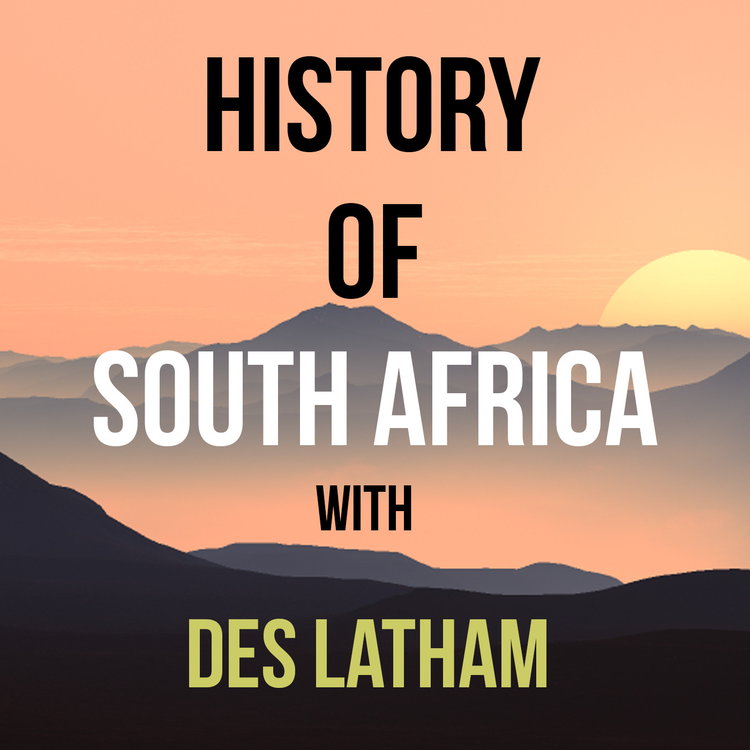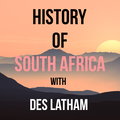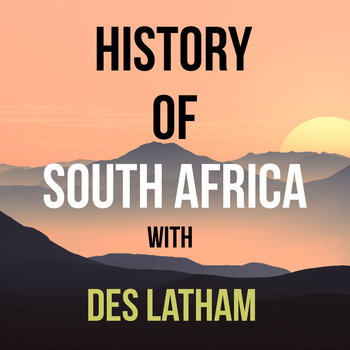
Episode 123 - The Voortrekkers as Israelites and Mzilikazi is about to become Pharaoh
Loading player...
Just a quick thank you to the folks at East coast Radio, Diane and DW, for promoting this podcast with listeners to that station, I’m honoured to have cracked the nod and been selected to be part of their ECR podcast platform.
Also a big thank you to all the listeners who’ve reviewed this podcast on iTunes and elsewhere, it’s pushed the series into the top 20 or so at least according to Apple, and there’ve been close to 800 000 listens.
With that slightly self-serving service announcement, back to the real world of the third decade in the 19th Century.
Last episode we heard how Harry Smith was busy ridiculing the amaXhosa culture and religion, and planning to destroy their chiefs in order to ensure they would be pliable to the British government’s needs in the coming years. We’ll get back to Colonel Smith in future episodes.
Moshoeshoe’s kingdom had taken shape, and to his north, the kingdom of the BaTlokwa, who were led by Sekhonyela, the son of MaNthatisi. While she had been regal, stately, and charming, he was equally tall, but was surly and aggressive where she had been tactful. He was a capable war leader however, and Moshoeshoe had never managed to defeat him - in fact he had forced the BaSotho leader to hand over Thaba Bosiu to him in 1824. In the continuous war between Moshoeshoe and Sekhonyela, the greatest treasure was the Caledon River Valley - a land of water, pasturage, and defensive buttes and other landscape strongholds.
The Batlokwa ruled the upper valley, the north, and by 1835 Sekhonyela had emulated Moshoeshoe in forming alliances with the Drosters - the Griquas and other mixed race groups that were living along the western edge of his land.
The Drosters had been repeatedly defeated by Mzilikazi and he stood menacingly in the path of the Trekkers pushing north across the Vaal River - a confrontation was unavoidable. It had been a remarkable journey for Mzilikazi from the area at the headwaters of the Black Mfolozi in north Western Zululand, up on the highveld to the Vaal River. As he roamed, he killed off all competitors, particularly members of his own family, similar to what Shaka and Dingane had done.
He ran his kingdom as a Zulu, he also had age based regiments, he also forced his warriors to fight for him before they could marry, usually taking about 10 years, the unmarried men known as the amaJaha. The older men who were the members of the ibutho, had many wives and children, large herds, and took captives from war, who did the chores around the homestead, enslaved.
By the early 1830s these Ndebele were happily ensconced north of the Magaliesburg mountains with its excellent water and pastures. And its warmer than other areas of the highveld, with its ridges covered in thick vegetation. Despite controlling territory all the way south of the Vaal and for hundreds of kilometers around this central point, Mzilikazi was paranoid about his safety.
is diplomacy was specifically aimed at preventing others like the Drosters heading into his land from the Cape - and here he completely underestimated the Voortrekkers.
They conformed to no treaty either, which is not what Mzilikazi had expected.
Leading the most significant of these trek parties was Andries Hendrik Potgieter who was a farmer from the Cradock District who’d departed from his beloved Klein Karoo in December 1835. There were 49 armed men and teenage boys over 16, he led 50 wagons, and was joined by Charl or Sarel Cilliers as he became known, who lived near Colesberg. He had 25 adult men in his group, and included a ten year-old Paul Kruger as I’ve mentioned.
Also a big thank you to all the listeners who’ve reviewed this podcast on iTunes and elsewhere, it’s pushed the series into the top 20 or so at least according to Apple, and there’ve been close to 800 000 listens.
With that slightly self-serving service announcement, back to the real world of the third decade in the 19th Century.
Last episode we heard how Harry Smith was busy ridiculing the amaXhosa culture and religion, and planning to destroy their chiefs in order to ensure they would be pliable to the British government’s needs in the coming years. We’ll get back to Colonel Smith in future episodes.
Moshoeshoe’s kingdom had taken shape, and to his north, the kingdom of the BaTlokwa, who were led by Sekhonyela, the son of MaNthatisi. While she had been regal, stately, and charming, he was equally tall, but was surly and aggressive where she had been tactful. He was a capable war leader however, and Moshoeshoe had never managed to defeat him - in fact he had forced the BaSotho leader to hand over Thaba Bosiu to him in 1824. In the continuous war between Moshoeshoe and Sekhonyela, the greatest treasure was the Caledon River Valley - a land of water, pasturage, and defensive buttes and other landscape strongholds.
The Batlokwa ruled the upper valley, the north, and by 1835 Sekhonyela had emulated Moshoeshoe in forming alliances with the Drosters - the Griquas and other mixed race groups that were living along the western edge of his land.
The Drosters had been repeatedly defeated by Mzilikazi and he stood menacingly in the path of the Trekkers pushing north across the Vaal River - a confrontation was unavoidable. It had been a remarkable journey for Mzilikazi from the area at the headwaters of the Black Mfolozi in north Western Zululand, up on the highveld to the Vaal River. As he roamed, he killed off all competitors, particularly members of his own family, similar to what Shaka and Dingane had done.
He ran his kingdom as a Zulu, he also had age based regiments, he also forced his warriors to fight for him before they could marry, usually taking about 10 years, the unmarried men known as the amaJaha. The older men who were the members of the ibutho, had many wives and children, large herds, and took captives from war, who did the chores around the homestead, enslaved.
By the early 1830s these Ndebele were happily ensconced north of the Magaliesburg mountains with its excellent water and pastures. And its warmer than other areas of the highveld, with its ridges covered in thick vegetation. Despite controlling territory all the way south of the Vaal and for hundreds of kilometers around this central point, Mzilikazi was paranoid about his safety.
is diplomacy was specifically aimed at preventing others like the Drosters heading into his land from the Cape - and here he completely underestimated the Voortrekkers.
They conformed to no treaty either, which is not what Mzilikazi had expected.
Leading the most significant of these trek parties was Andries Hendrik Potgieter who was a farmer from the Cradock District who’d departed from his beloved Klein Karoo in December 1835. There were 49 armed men and teenage boys over 16, he led 50 wagons, and was joined by Charl or Sarel Cilliers as he became known, who lived near Colesberg. He had 25 adult men in his group, and included a ten year-old Paul Kruger as I’ve mentioned.

